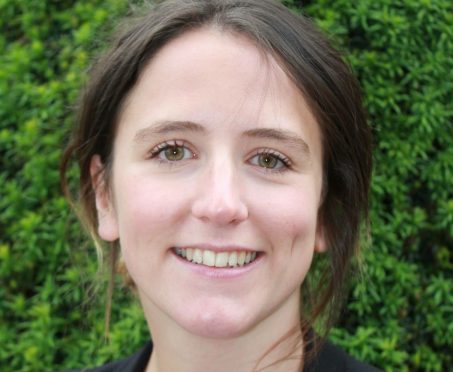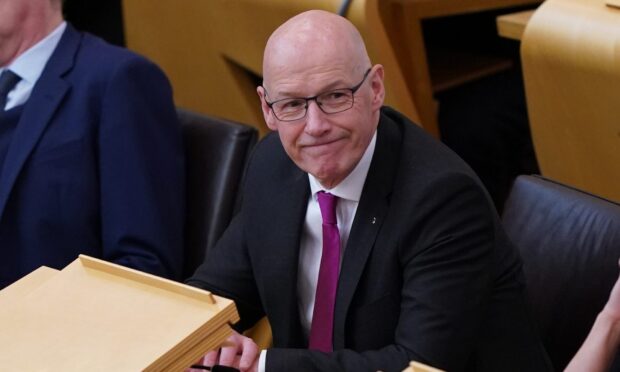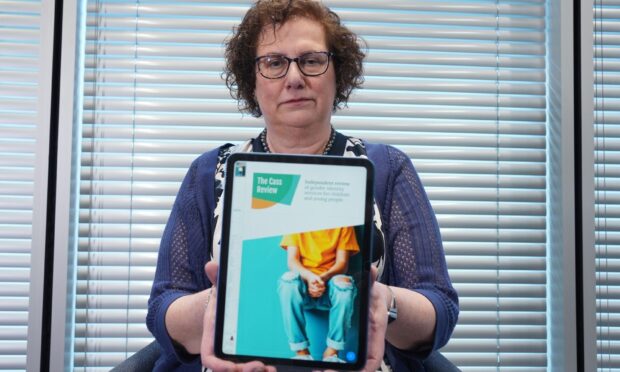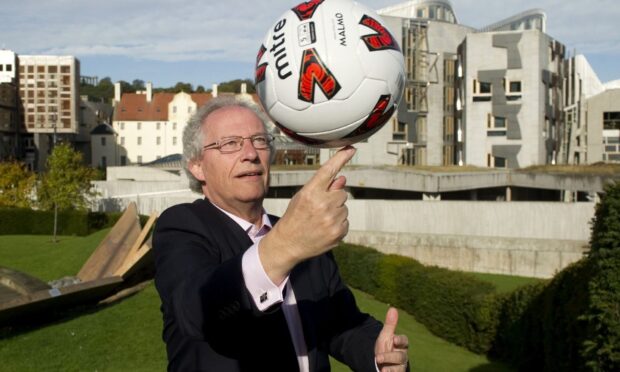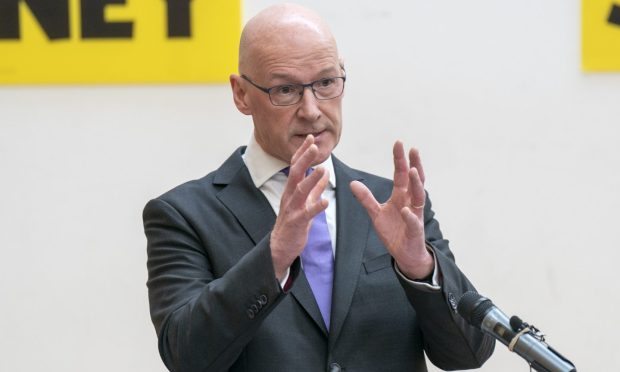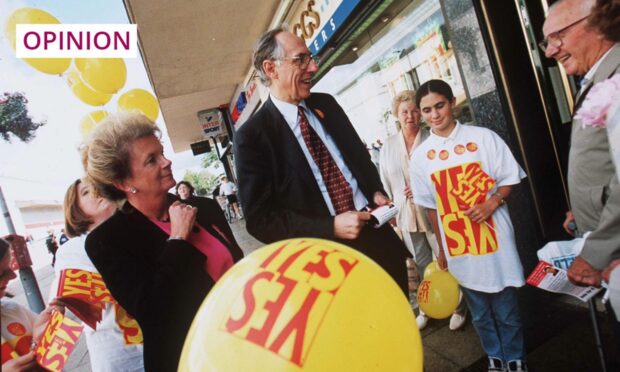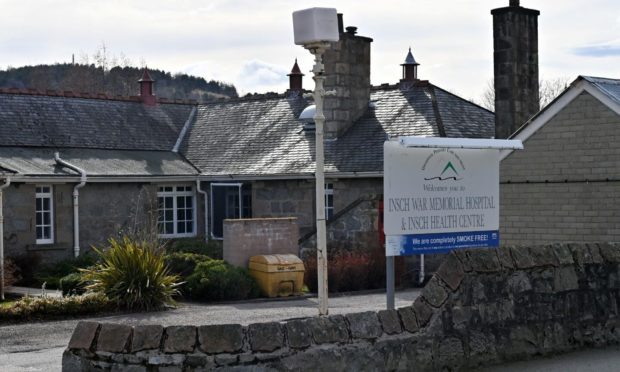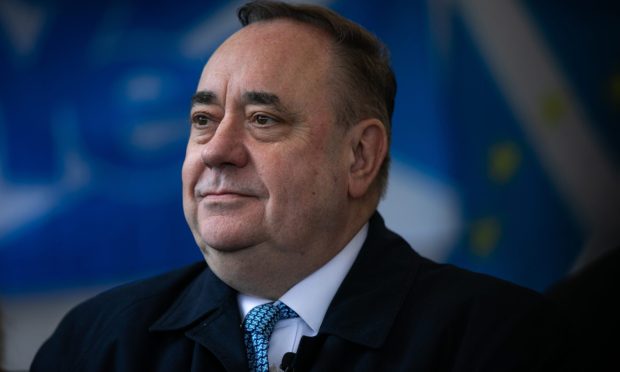It’s 394 days since Scotland voted Remain by 62% to 38% while the UK-wide poll ensured our country was dragged out of the EU.
Much has happened in UK politics since that fateful day on June 23rd, 2016.
We have a new prime minister. We have a now former chancellor George Osborne quitting as an MP to focus on goading Theresa May through the pages of the London Evening Standard as the paper’s new editor.
Then came the snap general election in June that led to the discovery of a magic money tree to help the prime minister hand a £1.5billion sweetener to Northern Ireland in forming a Conservative-DUP Government coalition.
Throughout it all there has been one constant – the Conservative Government’s approach to Brexit has been shambolic.
What will it mean for our jobs, our trade, the EU nationals who have travelled here hoping to set up their home in Scotland? And what about the expats who have used their freedom of movement to move abroad?
As the former chair of the East of Scotland European Consortium, a regular visitor to the heart of the EU in Brussels and a fully-engaged member of the Culture, Tourism, External Relations and Europe Committee at Holyrood, I have a very keen interest in immigration.
Scotland may be mistakenly seen by some within Europe as a region of the UK, but we are a country that, at times, thinks differently from the rest of our UK neighbours.
Even a report by the House of Lords EU committee stated earlier this week that: “There is a strong political and economic case for making differentiated arrangements for Scotland.”
If Scotland is ultimately forced to leave the EU, we need the opportunity to do things differently.
Earlier this year, Dr Eve Hepburn compiled a 116-page report that cited 20 ways Scotland could have that ‘differentiated approach’ to immigration.
Norway and Switzerland have an at-arms-length deal with the European single market, while Quebec has different immigration powers from the rest of Canada.
With many legislative powers already devolved to Holyrood, Dr Hepburn argues her recommendations could be implemented here.
Why is this so important?
Scotland is an open, inclusive and forward-thinking nation that welcomes and embraces different cultures.
Immigration and freedom of movement not only allows Scots to travel freely within the EU but it helps our economy.
Recent Scottish Government figures show that more than a third of all 380,000 non-UK nationals in Scotland are educated to degree level or higher. That number is considerably higher than the overall national total of one in four.
Some 57% of EU nationals in Scotland are of prime working age (25-49). Only 4% are 65+ versus 18% nationally and there is higher employment amongst EU migrants than the country as a whole – with 78.9% employed compared to the 73.4% nationally.
The misconception that migrants come here and scrounge off our benefits system is dispelled by that statistic alone.
The average wage of an EU migrant is £3-an-hour less (£8.60) than a Scottish-born worker (£11.60) and this is probably down to the fact that many of the highly-educated migrants initially take on lower skilled jobs to improve their English.
Many of our industries rely on migrant workers. In the north-east within the fast-growing soft fruit industry, sales have grown by 150% and Scotland’s combined output of soft fruit and vegetables accounts for a third of the UK market.
The industry is worth £230million-per-annum and relies heavily on the estimated 15,000 seasonal migration workers who come to Scotland annually.
Will it work without the migrant workers? Will we be better off without them?
No and no.
All studies show that immigration – particularly in Scotland – bolsters our economy. Even at the height of the financial crisis between 2007 and 2011, research at University College London in 2014 showed that migrants made a “net contribution of almost £2billion to UK public finances”.
In short, EU migrants pay their way and add diversity to our beautiful country and Scotland must be given a seat at the Brexit negotiating table to ensure we can uphold our status as a welcoming and inclusive country.
#TeamMairi
It was just after 5am when my alarm went off to signal the start of the day.
I often wake at that time to clear my head with an early run.
But this day was different as I was meeting up with the rest of #TeamMairi for a walk to the peak of Edinburgh’s Arthur’s Seat in aid of north-east charity Pillar Kincardine.
I embraced the task with boundless enthusiasm but a couple of my team were a tad less enthusiastic.
With dark shadows under their sleep-deprived eyes, Chris and Ewan moaned their way through the first steps towards the iconic capital landmark.
However, as the fresh air circulated in their lungs, they joined Sandra and I in revelling in beauty of our surroundings in Scotland’s capital city.
When we reached the peak of Arthur’s Seat there was an incredible sense of accomplishment.
Our walk was inspired by Pillar Kincardine’s t26.2 challenge to raise funds and awareness for the Stonehaven-based mental health charity.
The idea is to get as many people as possible to team up to walk, run or cycle a combined total of 26.2 miles over days, weeks or even a few months.
I pride myself on being accessible
It’s a common complaint that you only ever see your elected representative at election time.
That’s a myth I have been keen to dispel since I was elected as an MSP for Angus North and Mearns at the Scottish Parliament elections in 2016.
That’s why at 10am on Friday June 16th – just a week on from the general election count – I was knocking doors across my constituency – from Stonehaven to Brechin taking in Gourdon, Johnshaven and Montrose en-route.
With seven elections or referenda in just over two years, people are used to political representatives asking for their vote.
But when my team and I knocked doors our sole intention was to offer help with any issues my constituents had.
Often, I was greeted with surprise that I wasn’t seeking a vote and as the doorstep surgeries continue, I’ll be knocking a door near you soon.
I pride myself on being accessible.
